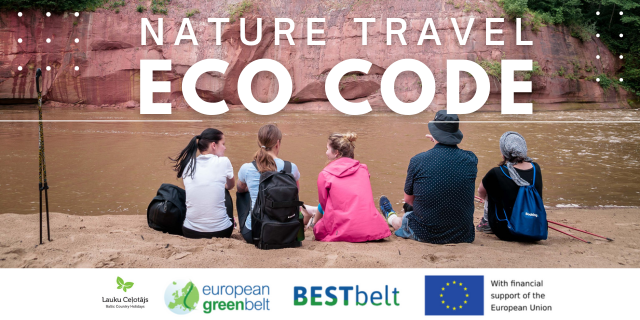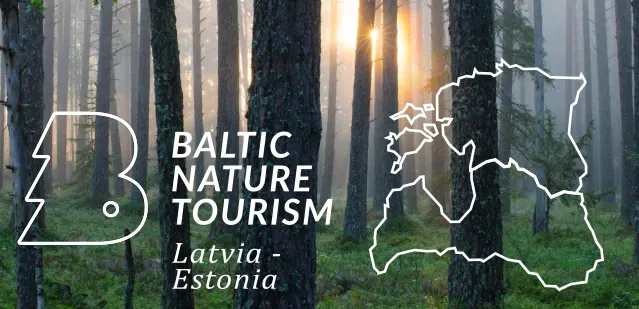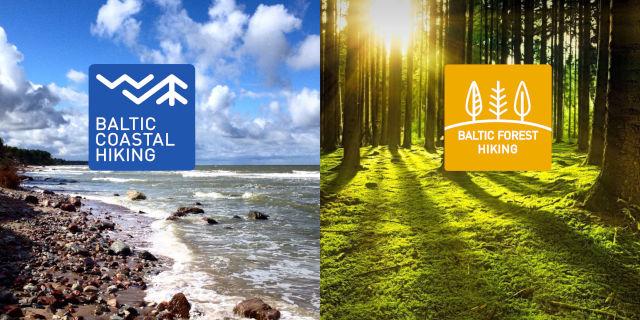
|
 |
| Visit the visitors’ centre of each national park. |
Don’t ever dump your trash on the shore or in the water – take it along. Once you understand how much refuse you produce, you’ll be more green in your thinking. |
 |

|
| As you approach your starting or finishing point, please remember that proper people in Latvia drive their automobiles exclusively on roads that are meant for them. |
Leave your car where it will not harm nature and will not hinder other travellers. |
 |
 |
| Sometimes it’s more interesting to learn about those species that are encountered frequently, not seldom, and on an everyday basis. |
Put waste where it belongs so that you can enjoy the site next time. |
 |
 |
| Don’t write or draw anything on outcrops – after all, you wouldn’t draw or write anything on your walls at home. |
Buy farm goodies from local farmers. |
 |
 |
| If there is no firewood, try to buy some from a nearby farm. If there is a larger group of travellers, bring your own firewood, or perhaps charcoal and a grill for cooking purposes. Don’t use open fire during the season when forest fires are a risk. Please do not dump ashes from a campfire into the water, because that will promote overgrowth. |
During your trip, pack up your mobile boat carefully enough that you don’t want to drag it out unnecessarily. Turn off the sound – it won’t bother you or the residents of the environment. |
 |
 |
| On the river, speak quietly, and don’t make lots of noise – then you’ll see lots of forest and water-based animals right nearby, as if you were in a National Geographic special. |
Remember that you can spend the night in a NATURA 2000 territory only in specifically designed places such as tourist accommodations or campsites. If there are no such facilities, stay at a country tourist home. |
 |
 |
| Don’t go into caves during the autumn, winter and spring, when bats and other animals live there. You don’t like to be woken up in the middle of a deep sleep, and bats perish if they are woken up at the wrong time. |
Use local produce as much as possible instead of taking food staffs with you from the city. This way you will support the local economy. Besides, local foods taste well and fresh, they are healthier! |
 |
 |
| Write down your observations on the spot carefully. Field notes with precise data on when, where, how many birds of what species have been observed can provide valuable information for research and protection of birds. |
Respect the rights of other people and do not go beyond yours. Do not disturb other people enjoying nature. Respect the rights of land owners and managers. When visiting especially protected nature sites, read and respect the rules for their protection and use. |
 |
 |
| Don’t try to chase families of wild ducks, swans and other water fowl down the river, particularly if they have young. Instead, carefully boat around them and leave them behind. |
Cut mushrooms with a knife, don’t yank them out of the ground. Don’t use any mechanics to harvest wild berries. Let the forest offer its goodies to future visitors, too. |
 |
 |
| If you watch birds or animals, do it from a distance, and don’t disturb them where they relax or nest. The welfare of animals is the main thing. |
When you’re at a tourism house or hostel, save water, electricity, firewood and other resources. They’re not cheap. |
 |
 |
Leave animals alone, particularly if they are rare or endangered, when they are breeding, nesting or wintering. Animals don’t bother you in your house. Don’t bother them in theirs.
|
You probably shouldn’t bring man’s best friend along on a boat ride, but if you have to bring a dog, then remember that it must always be on a leash and with a muzzle in these territories. |
 |
 |
| Dont't let too many people scale the tower at once - the maximum number of people will be stated on a sign at the tower or in information from your guide. The tower will "dislike" it if you try to swing in back or forth or hang across or lean against its railings. |
Enjoy the view from a tower only if you have not drunk alcohol, taken intoxicating substances or medications, etc. |
 |
 |
Before you scale a tower, look at the surrounding situation, because that is a location of incrised risk. You're responsible for your own safety when you're up on a tower, while responsibility for the condition of the tower rests with its owner or manager.
|
Travel on environmentally more friendly transport – trains, bicycles, boats and skis. You’ll be closer to nature and protect it, too. |
 |
 |
On nature trails and in a natural environment, walk single file, because that will leave fewer footprints in the direct and indirect sense.
|
Read fishing rules and make sure that you’re familiar with the rules in the area where you’re boating. |
 |
|
| Launch your boat from a place where it’s easy to access the water. Try not to erode the shoreline, and please don’t bother people who live along the shore. |
|


































